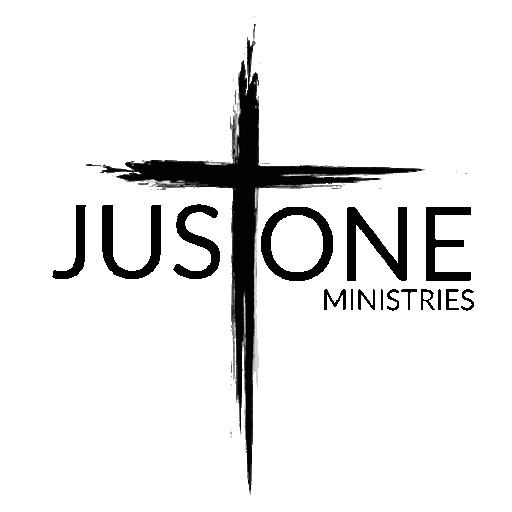Written By : Jared Abbott
We know from the Scriptures that the law is good, when used properly (1 Timothy 1:8). Contrary to what many believe, God’s rules and statutes are a reliable guide to thriving in the world that He designed. According to Psalm 19, God’s law is a valuable source of joy, enlightenment, and wisdom that refreshes the soul (Psalm 19:7-11). Jesus Himself held the law in high regard, and made it clear He had not come to abolish the law, but fulfill it (Matthew 5:17-20). Unfortunately, part of the reason that God’s law is viewed so negatively is because it has been misunderstood and misapplied, resulting in oppression rather than revival.
This is still an issue today, but Jesus was dealing directly with misunderstanding of the law over 2,000 years ago.
At that time Jesus went through the grain fields on the Sabbath. His disciples were hungry and began to pick some heads of grain and eat them. When the Pharisees saw this, they said to him, “Look! Your disciples are doing what is unlawful on the Sabbath.”
He answered, “Haven’t you read what David did when he and his companions were hungry? He entered the house of God, and he and his companions ate the consecrated bread—which was not lawful for them to do, but only for the priests. Or haven’t you read in the Law that the priests on Sabbath duty in the temple desecrate the Sabbath and yet are innocent? I tell you that something greater than the temple is here. If you had known what these words mean, ‘I desire mercy, not sacrifice,’ you would not have condemned the innocent. For the Son of Man is Lord of the Sabbath.” – Matthew 12:1-8, NIV
At this point, Jesus and his disciples were serving as itinerant ministers and were homeless for all intents and purposes, depending on financial contributions, including (at least on one occasion) piscine pesos (Matthew 17:24-27). The hungry disciples were plucking heads of grain from a nearby field. This was something permitted by the law, or rather, it was required that farmers leave the edges of their fields unharvested as a source of food for the needy (Leviticus 23:22). It is well known that the Sabbath was sanctified as holy to the Lord and work was not permitted. Per the Pharisaic interpretation of the Sabbath laws, plucking these heads of grain constituted work.
Jesus did not get tangled up in an extended debate about whether the Pharisaic interpretation was legally valid, but instead pointed to exceptions they themselves upheld. He pointed out that when David and his men were hungry, they were permitted by the priests to eat the sacred bread of presence. Although per the law only priests were permitted to eat the bread of the presence, an exception was made by the priest on the condition that David and his men were ritually clean and also in need (1 Samuel 21:1-6). Jesus also pointed out that priests technically broke the Sabbath in performing their daily duties, but it was not counted against them. Jesus argued that for the sake of fulfilling bodily needs and worshipping YHVH, exceptions could be made. The purpose of the law was to allow people to rest in the Lord. It was difficult to rest in hunger, and required temple services could not continue if priests kept the letter of the Sabbath laws. Even the temple services were for the benefit of the people (rather than God) since sacrifices were later shared as a meal between the priests and the worshippers, and the priests provided teaching and officiated over various service, both religious and judicial.
He also asserted His authority to allow for such exceptions as Lord of the Sabbath. Jesus exercised His authority to prioritize the benefit of people. This was, after all, the point of the law in the first place. The Almighty certainly did not set up these laws to benefit Himself, as if He needed anything. In contrast to Jesus, the Pharisees interpreted the law in such a way that they were able to use it to lord over people. They elevated law keeping as an end in itself, taking no account of whether their interpretation led to human flourishing, with themselves as its self-appointed enforcers.
The Pharisees had no reply to Jesus’s argument, but Jesus was not done with them.
Going on from that place, he went into their synagogue, and a man with a shriveled hand was there. Looking for a reason to bring charges against Jesus, they asked him, “Is it lawful to heal on the Sabbath?”
He said to them, “If any of you has a sheep and it falls into a pit on the Sabbath, will you not take hold of it and lift it out? How much more valuable is a person than a sheep! Therefore it is lawful to do good on the Sabbath.”
Then he said to the man, “Stretch out your hand.” So he stretched it out and it was completely restored, just as sound as the other. But the Pharisees went out and plotted how they might kill Jesus. - Matthew 12:1-8, NIV
This point was a perfect opportunity for those Pharisees to humble themselves, repent and confess their sins, and celebrate the healing of one of their own congregants. Instead they chose to continue to oppose the Lord of the Sabbath, and even plotted to murder Him. This is also an opportunity for us to examine ourselves rather than judging what these Pharisees did so long ago. Are we serving Jesus Christ as Lord? If so, His yoke is easy and His burden is light. Do we interpret and follow the Scriptures in such a way that people are healing and thriving, or are we using the Bible to keep others in subjection? Do we interpret and follow the Scriptures in such a way that we ourselves are healing and thriving? Are we using the minds God gave us to discern when reasonable exceptions should be made in times of need, or are we ruthlessly and rigidly enforcing laws for law keeping’s sake?




Share:
SAYING THE HARD THINGS
THE IMPORTANCE OF PRAYER